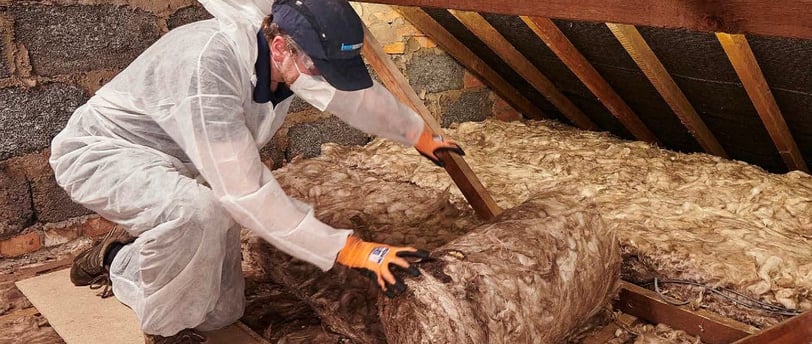Good insulation is essential for Air Source Heat Pumps (ASHPs)
Air Source Heat Pumps are most effective at producing low-level, consistent heat rather than quick bursts of high temperatures. That's why good insulation is essential for Air Source Heat Pumps to warm your home properly.
Cozy Homes
5/8/20242 min read


For an Air Source Heat Pump (ASHP) to work efficiently, the home needs to be well-insulated. Good insulation is essential because ASHPs operate most effectively when they don't have to compensate for large heat losses, especially during colder months. Here’s a breakdown of the insulation requirements:
Wall and Roof Insulation: Since walls and roofs are primary sources of heat loss, they should be well-insulated. Cavity wall insulation or solid wall insulation and adequate roof insulation (recommended R-values depending on climate) can help retain warmth, reducing the demand on the heat pump.
Windows and Doors: Double or triple glazing is recommended for windows, as poorly insulated windows can lead to significant heat loss. Draught-proofing around doors and windows is also essential, as gaps can allow heat to escape and cold air to enter, forcing the ASHP to work harder.
Floor Insulation: Uninsulated floors can lose a considerable amount of heat, especially if they’re over unheated spaces like garages or basements. Floor insulation helps maintain indoor temperatures and supports underfloor heating, which pairs well with ASHPs.
Ventilation: Proper ventilation is still necessary, but excessive air leaks (e.g., old or unsealed windows) should be addressed. Heat recovery ventilators (HRVs) can help maintain air quality while minimizing heat loss, enhancing ASHP efficiency.
Why Good Insulation is Essential for ASHPs
ASHPs work by extracting heat from outside air and transferring it into the home, but they are most effective at producing low-level, consistent heat rather than high, quick bursts. This lower-temperature heating is ideal for well-insulated homes that maintain temperature well. In poorly insulated homes, heat quickly escapes, meaning the ASHP would need to run longer and consume more energy, reducing its efficiency and potentially leading to higher energy bills.
Insulation Standards
Homes with an ASHP ideally meet energy-efficiency standards like those in Passive House or modern building codes. This level of insulation helps ensure that the heat pump can perform optimally, even in cold weather, without excessive reliance on backup heating.
In short, a well-insulated home maximizes the energy efficiency of an ASHP, allowing it to provide steady warmth at lower operational costs and with reduced environmental impact. For older or poorly insulated homes, upgrading insulation can significantly improve the performance and cost-effectiveness of an ASHP system.
Thinking about an Air Source Heat Pump for your home?
Talk to one of our highly accredited installers for more bespoke advice for your home.
© Cozy Homes 2024. All rights reserved.
